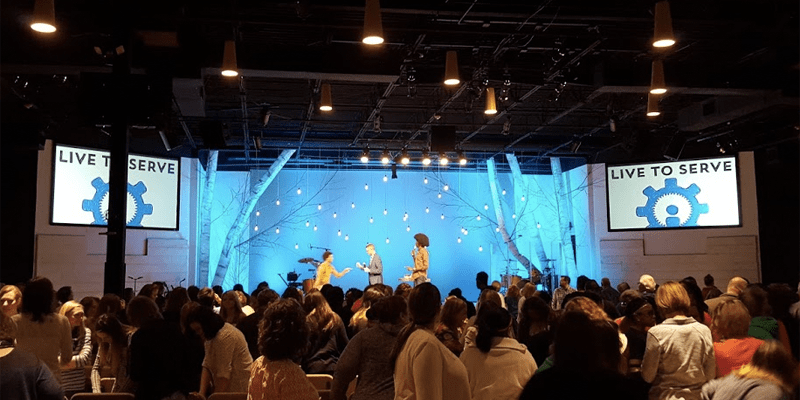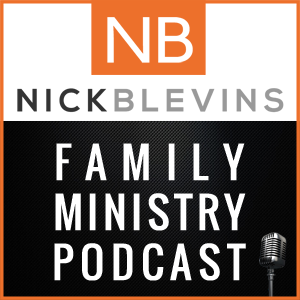In the survey I recently did, volunteer training was one of the top topics family ministry leaders were interested in. Training volunteers is crucial and I believe it is something many leaders struggle to do well. It's also something that isn't a one-size-fits-all approach, so each leader has to determine what their ministry needs.
5 Ways To Train Volunteers
In addition to figuring out what our ministries need, something we can miss is the importance of using different training methods. I think we should use multiple training methods and pay close attention to which ones fit us best based on our team, our gifts, our rhythm and our ministry size. Regardless of those factors, I do believe one of these methods is the best and every ministry should have it as a foundational part of their training plan.
Large Group Setting
This is probably what most of us picture when we talk about training volunteers. We think of a large group setting where somebody teaches content to the group. The advantage is we can train a lot of people at one time. The disadvantage is that it requires a gifted communicator to prepare and deliver the content. I think this option is helpful for orientations and vision casting.
Small Group Setting
In my opinion we don't take advantage of this method enough. This method is just like leading a small group with the content being whatever we want volunteers to be trained with. The advantage is it doesn't require a gifted communicator/teacher and community can be built in the process. The disadvantage is that it does require an existing structure and a lot more leaders. It also needs content that's written and created with small groups in mind. I think this is helpful for training around specific roles, specific skills, or when we want to develop a team all together.
1-on-1 Mentoring
If you were to poll top business leaders you would find the vast majority of them receive regular coaching and mentoring. Most of us will only reach our potential with the help of a coach. The advantage to mentoring is the training can be very specific to what the person needs. The disadvantage, of course, is that it requires the most leaders and the most commitment from those leaders. In an ideal world every volunteer is led by someone who is pouring into them. I think this method should be used by every leader with the people they lead at least once or twice a year.
Distributed Self-Learning
In the world we live in this is a great training option. Essentially we create training content in some format and distribute it to volunteers for them to go through on their own. This could be training videos, articles, audio teachings, or even pushing content through email and social media. The advantage is the content lasts for a long time. The disadvantage is there may be less accountability and little relationship building. I think this is best for ongoing development and for training early on in the process.
Apprenticing
The best churches I have learned from all use apprenticing in a big way. In fact, I think it is the best training method there is. The advantage is, as Andy Stanley says, that “leaders learn on a need-to-know basis.” Putting them in an environment where they must learn helps them retain more. Also, people typically learn and retain more by doing it and teaching it, both of which can happen through apprenticing. The disadvantage is that it's harder to control and ensure apprentices are getting the experience you want.
What methods do you use and prefer?
Did I miss a method? What methods do you use and which one do you think is best?






